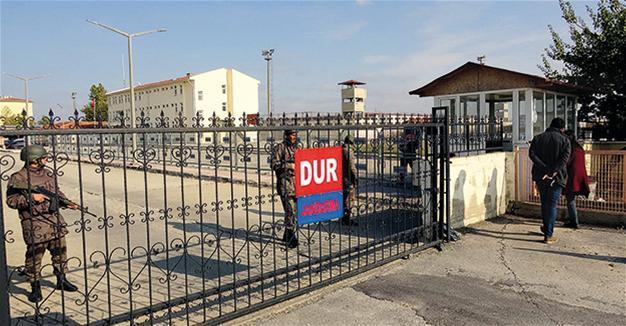Euro court rules against Turkey in prison letter monitoring case
STRASBOURG
 The European Court of Human Rights (ECHR) on Dec. 13 ruled that Turkey breached an applicant’s right to respect for private and family life after prison authorities failed to secure the confidentiality of a letter sent by the convict to her lawyer.
The European Court of Human Rights (ECHR) on Dec. 13 ruled that Turkey breached an applicant’s right to respect for private and family life after prison authorities failed to secure the confidentiality of a letter sent by the convict to her lawyer. Eylem Kaya’s application to the ECHR accused authorities of breaching her right to respect for private and family life was violated when prison authorities, who were tasked with physically monitoring letters, failed to safeguard the confidentiality of a letter she wrote in 2007 while she was in prison.
Kaya said her letter should have been stamped on the envelope, but in fact it was stamped on the actual paper of the letter. “There was therefore nothing to prevent the authorities from reading the content of that letter,” she added.
According to Turkish law, there are exceptions in the prohibition imposed on monitoring prisoners’ correspondence with their lawyers if they are charged with membership of a criminal organization.
“These exceptions allowed for two forms of monitoring: A physical check, carried out systematically by the prison authorities [as was found in the context of the present case] and a review carried out by the sentence execution judge where the conditions laid down in the domestic law were satisfied,” the ECHR ruling said, referring to the Turkish legislation.
The ECHR acknowledged that the Turkish authorities executed this law when they monitored the letter, but added that “the practice consisting in the systematic physical monitoring by the prison authorities of Ms. Kaya’s correspondence with her lawyer had not been proportionate to the legitimate aim pursued.”
The court ruled that the Turkish authorities should pay Kaya 300 euros in non-pecuniary damages.
















